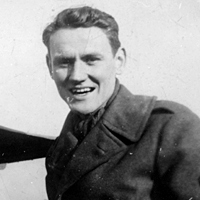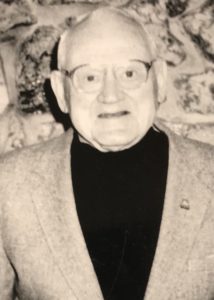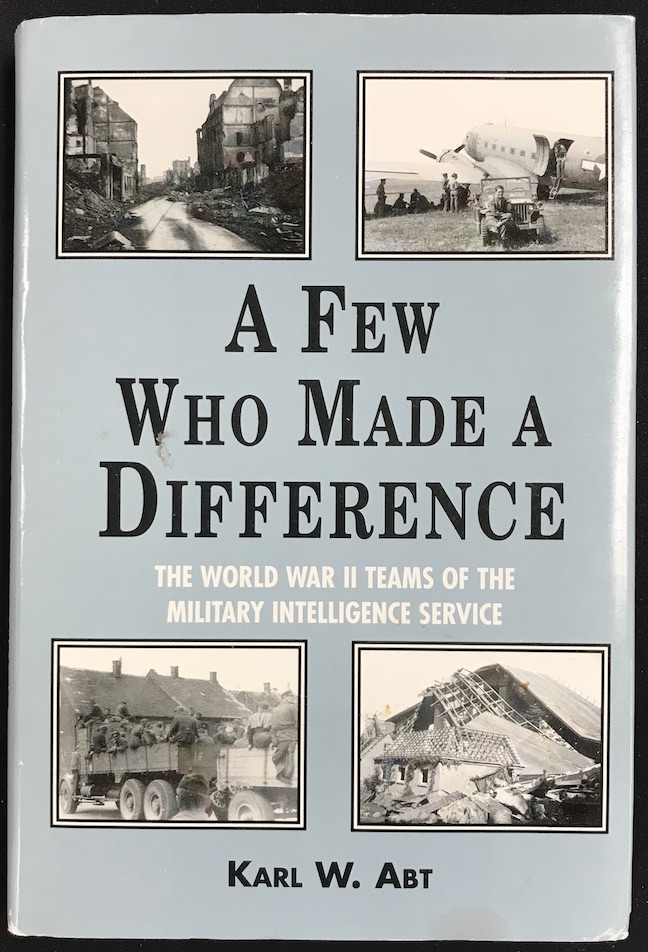
Karl Abt was one of Tom’s friends and a fraternity brother from his days at Northwestern University. Karl was in Army Intelligence during WWII and after the war went seeking more information about Tom’s death.
Karl wrote of his wartime experiences in a book, “A Few who Made a Difference.” In the book, he discusses Tom’s loss and his unsuccessful search for the crash site.
Despite all the apparent successes, there were still losses and failures which resulted in deaths. For instance, I learned later on that my college fraternity brother, Tom Cartmell, had been a pilot of one of three night fighters flying over the Danube River on April 26th. The entire flight was whot down by U.S. anti-aircraft fire, an incomprehensible action in view of the fact that the German had nothing in the sky anymore. Years later, I visited Tom’s grave in an American cemetery in the French province of Lorraine.[1]Page 95
On Sunday[2]November, 1945, I carried out a search all day long. Dillingen, on the Danube, near where my college fraternity brother Tom Cartmell had crashed in his fighter plane on April 26th, lay only twenty miles northeast of Ulm. I spent most of the day, scouring the environs to ask farmers if they knew where the crash site was located. All pleaded ignorance of the event, or possibly they knew but would not tell. I returned to Ulm without any success. Years were to pass before I saw Tom’s grave in an American cemetery in the French province of Lorraine.[3]Page 149-150

Letters:
- November 21, 1944, Somewhere in Belgium
- November 23, 1944, Belgium
- July 7, 1945, Kaiserslautern, Germany
Karl was interviewed by the Northwestern University Kellogg School of Management Alumni Newsletter about his book. His interview, in part, includes:
Kellogg World: What was your motivation for writing A Few Who Made A Difference?
Karl Abt: I wrote this book in 2002 and began looking for a publisher when it was finished. Last year there was a lot in the newspapers about the Intelligence Service and how it was being used and abused [at Iraq’s Abu Ghraib prison]. When I was in the service, we didn’t conduct any abusive behavior like that. We followed the Geneva Convention code. I talk about that in the book. That’s important for people to know. Another big motivation for writing was that the fellows on my team thought I ought to do it. One by one they are all leaving us.
KW: How were you chosen for the Military Intelligence Service?
Abt: It was a choice offered to me and I took it. The Army tried to enhance the skills you already had and work with them. I was born in Germany and my parents spoke German, English and French when I was growing up. In 1927, when I was 4 and my brother was 2, my father lost his business, a furniture factory. He had some contacts in the States and was offered a job as a furniture designer in Grand Rapids, Mich. My brother and I were so fortunate that we never experienced Hitler’s Germany.

Karl died in 2008. An excerpt from his obituary reads:
